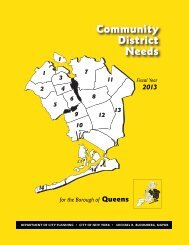Palm Oil Buyers Scorecard
WWF_Palm_Oil_Scorecard_2016
WWF_Palm_Oil_Scorecard_2016
You also want an ePaper? Increase the reach of your titles
YUMPU automatically turns print PDFs into web optimized ePapers that Google loves.
TESSO NILO<br />
Tesso Nilo National Park, in the heart of<br />
Sumatra, is home to critically endangered<br />
Sumatran elephants and tigers as well<br />
as some of the most diverse plant life in<br />
the world. The forest complex originally<br />
covered 1.6 million hectares, but by<br />
2012, due to deforestation for oil palm<br />
and pulpwood plantations, just 170,000<br />
hectares remained.<br />
At the time we called for the government<br />
and the palm oil industry to work toward<br />
constructive solutions to stop any<br />
further expansion, stop buying illegally<br />
produced fresh fruit bunches (FFB) and<br />
support smallholders already illegally in<br />
the area to relocate.<br />
Despite promises that things would<br />
change, a follow-up study in 2015 with<br />
the Indonesian NGO coalition Eyes on<br />
the Forest showed that the buying of<br />
illegal FFB and palm oil was continuing<br />
unabated. It found subsidiaries of even<br />
more companies including Royal Golden<br />
Eagle, Golden Agri-Resources, Wilmar,<br />
Musim Mas and many other smaller<br />
companies receiving illegal FFB or<br />
crude palm oil (CPO) tainted with<br />
illegal FFB. The issue appears to be<br />
systemic, meaning most of the world’s<br />
palm oil supplies may contain traces of<br />
FFB illegally grown in some of the last<br />
remaining habitats of critically endangered<br />
species like tigers, elephants, and orangutans.<br />
That is a strong argument for the need<br />
to source only 100 per cent segregated<br />
CSPO – as one of the only ways for<br />
brands to eliminate the worst irresponsible<br />
palm oil from their supply chains.<br />
Tesso Nilo is also an unfortunate example<br />
of how even those parts of the industry<br />
trying to tackle the problem seem to be<br />
going about it in a wholly inadequate way.<br />
Companies and their consultants claim<br />
to offer traceability – but only as far as<br />
the mill. This will not prevent FFB from<br />
unsustainable and illegal plantations from<br />
entering the supply chain.<br />
Companies need to put in place controls<br />
at the mill level to make sure they only buy<br />
FFB from known and identified plantations<br />
– and, eventually, only certified ones. Only<br />
when each and every mill practises this due<br />
diligence will the industry be able to claim<br />
that all its palm oil is deforestation-free.<br />
The dire state of Tesso Nilo also illustrates<br />
why the palm oil industry will not be<br />
able to become fully sustainable until<br />
governments play their part in regulating<br />
and eliminating the worst performers and<br />
supporting the rest to become sustainable.<br />
The authorities in the region have<br />
allocated licences for mills adjacent to the<br />
national park even when there is no more<br />
land that could be legally used to grow<br />
oil palm. It has also turned a blind eye to<br />
illegal encroachment, and to the role of<br />
companies in driving and profiting from it.<br />
• Learn more about Tesso Nilo and illegal<br />
palm oil:<br />
<strong>Palm</strong>ing Off a National Park<br />
Tiger in your tank?<br />
No one is safe<br />
56 WWF PALM OIL BUYERS SCORECARD 2016




